- News
- Reviews
- Bikes
- Accessories
- Accessories - misc
- Computer mounts
- Bags
- Bar ends
- Bike bags & cases
- Bottle cages
- Bottles
- Cameras
- Car racks
- Child seats
- Computers
- Glasses
- GPS units
- Helmets
- Lights - front
- Lights - rear
- Lights - sets
- Locks
- Mirrors
- Mudguards
- Racks
- Pumps & CO2 inflators
- Puncture kits
- Reflectives
- Smart watches
- Stands and racks
- Trailers
- Clothing
- Components
- Bar tape & grips
- Bottom brackets
- Brake & gear cables
- Brake & STI levers
- Brake pads & spares
- Brakes
- Cassettes & freewheels
- Chains
- Chainsets & chainrings
- Derailleurs - front
- Derailleurs - rear
- Forks
- Gear levers & shifters
- Groupsets
- Handlebars & extensions
- Headsets
- Hubs
- Inner tubes
- Pedals
- Quick releases & skewers
- Saddles
- Seatposts
- Stems
- Wheels
- Tyres
- Health, fitness and nutrition
- Tools and workshop
- Miscellaneous
- Tubeless valves
- Buyers Guides
- Features
- Forum
- Recommends
- Podcast
review
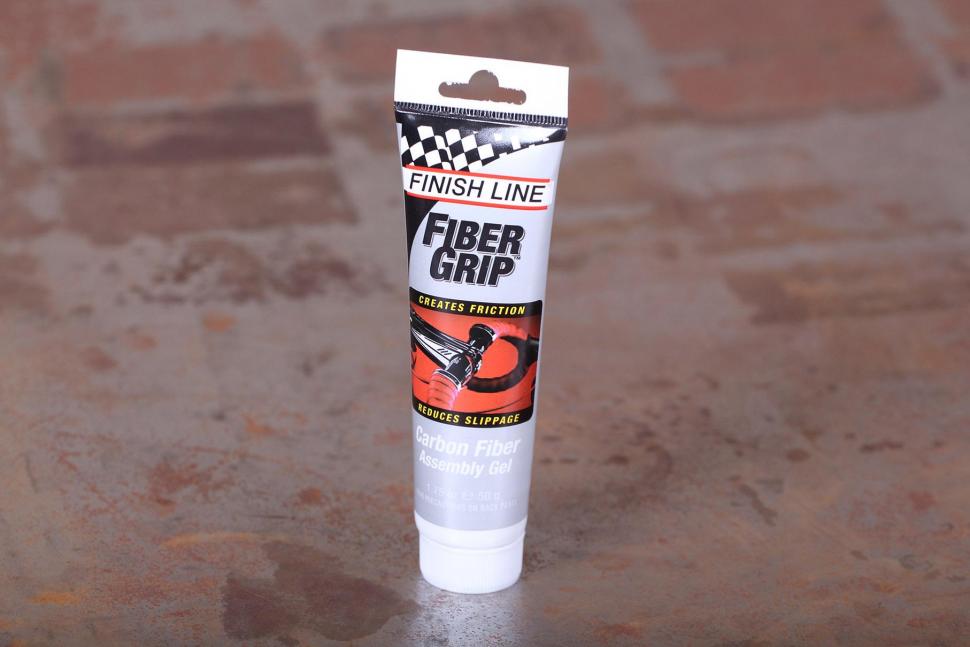 Finish Line Fiber Grip carbon fibre assembly gel.jpg
Finish Line Fiber Grip carbon fibre assembly gel.jpg£9.99
VERDICT:
Convenient, friendly carbon assembly gel that works, won't break the bank, and should last many years
Weight:
50g
Contact:
At road.cc every product is thoroughly tested for as long as it takes to get a proper insight into how well it works. Our reviewers are experienced cyclists that we trust to be objective. While we strive to ensure that opinions expressed are backed up by facts, reviews are by their nature an informed opinion, not a definitive verdict. We don't intentionally try to break anything (except locks) but we do try to look for weak points in any design. The overall score is not just an average of the other scores: it reflects both a product's function and value – with value determined by how a product compares with items of similar spec, quality, and price.
What the road.cc scores meanGood scores are more common than bad, because fortunately good products are more common than bad.
- Exceptional
- Excellent
- Very Good
- Good
- Quite good
- Average
- Not so good
- Poor
- Bad
- Appalling
Finish Line Fiber Grip carbon fibre assembly gel is handily packaged and reasonably priced for home use. And it works.
If you own a bike with carbon components and want to do any work involving removing, refitting or adjusting them, you need carbon assembly product of some sort. Be it a paste or gel, applied by brush or finger, you need something to assist in preventing slippage or creaks, and to minimise the torque required on clamping parts.
> Find your nearest dealer here
This Finish Line gel is clear, non-toxic, odour-free, non-staining and biodegradable. I wouldn't recommend eating it, but you probably could. The gel feels grittier than my go-to assembly paste by Motrex – you can feel the 'grit' particles if you slide it between your fingers. But it's not going to damage anything.
Finish Line recommends using it for carbon-carbon and carbon-alloy clamping, and claims that when used correctly you need up to half the recommended torque to hold things steady.
> Beginner's guide to bike tools
Put simply, it works. Nothing slipped, it was easy to apply, and cleaned up with a wipe of a rag. Yes, £10 isn't the cheapest carbon paste out there, but the Finish Line product is often available for around the £6-£7 mark. Given the tube will last most home-mechanics a lifetime of bar/stem/seatpost work, the money's possibly irrelevant. You can buy a 450g tub for about £27, which works out at less than half the price, but unless you're running a bikeshop or family fleet of carbon machines, chances are you'll never get through it in a lifetime.
Verdict
Convenient, friendly carbon assembly gel that works, won't break the bank, and should last many years
road.cc test report
Make and model: Finish Line Fiber Grip
Size tested: 1.75 oz / 50 ml
Tell us what the product is for, and who it's aimed at. What do the manufacturers say about it? How does that compare to your own feelings about it?
It's for anyone with any carbon bike component needing clamping.
Finish Line says: "Fiber Grip™ is specially designed to create friction and reduce slippage between clamped carbon fiber surfaces. Fiber Grip eliminates the need to over tighten clamps to achieve secure connections. Over tightening can cause internal fractures and fatigue of carbon fiber parts. Apply Fiber Grip in a thin film to clamping areas of stems, handlebars, seat posts, and seat tubes. Tested and approved by leading carbon fiber component manufacturers."
Tell us some more about the technical aspects of the product?
Non-toxic, biodegradeable
Rate the product for quality of construction:
8/10
Rate the product for performance:
8/10
Rate the product for durability:
8/10
Rate the product for value:
8/10
Tell us how the product performed overall when used for its designed purpose
Perfectly.
Tell us what you particularly liked about the product
It's eco-everything.
Tell us what you particularly disliked about the product
Nothing.
Did you enjoy using the product? Yes
Would you consider buying the product? Yes
Would you recommend the product to a friend? Yes
Use this box to explain your score
In comparison with other carbon pastes, the easy cleanup and non-toxicity/biodegradability combined with the price makes this a winner.
About the tester
Age: 43
I usually ride: Merida Ride 5000 Disc My best bike is:
I've been riding for: Over 20 years I ride: A few times a week I would class myself as: Expert
I regularly do the following types of riding: cyclo cross, club rides, general fitness riding, mountain biking, Dutch bike pootling
Living in the Highlands, Mike is constantly finding innovative and usually cold/wet ways to accelerate the degradation of cycling kit. At his happiest in a warm workshop holding an anodised tool of high repute, Mike's been taking bikes apart and (mostly) putting them back together for forty years. With a day job in global IT (he's not completely sure what that means either) and having run a boutique cycle service business on the side for a decade, bikes are his escape into the practical and life-changing for his customers.
Latest Comments
- Hirsute 2 hours 11 min ago
Ruby dash cam, exposed UK dash cam, UK dash cam all do yearly or monthly round ups. Probably the best option to see major stuff.
- Beachboy 5 hours 5 min ago
And some of us have been cycling for 60 years, and are surprised by the number of electric motorcycles on the city streets and pavements. I still...
- hawkinspeter 9 hours 22 min ago
Typical - they just (Time)lord it over us
- mark1a 10 hours 19 min ago
The article is subtitled "the 10 bikes we're most excited for in 2025", I'm guessing that the normal everyday titanium bikes for normal riders are...
- hawkinspeter 10 hours 52 min ago
No - they're a more recent American import. We (UK) got them in 1876 and Europe waited until 1948 to get them (more specifically, in Stupinigi,...
- wtjs 11 hours 29 min ago
I've only ever snapped up Shimano components Subtle and subliminal 'pasta cranks' propaganda from HP!
- wtjs 11 hours 33 min ago
I wonder if Cheshire police officers are of the opinion that the driver is entitled to ram a cyclist off the road if he 'takes the lane' in those...
- David9694 14 hours 45 min ago
Driver warned to take his meds after 'spectacular crash'...
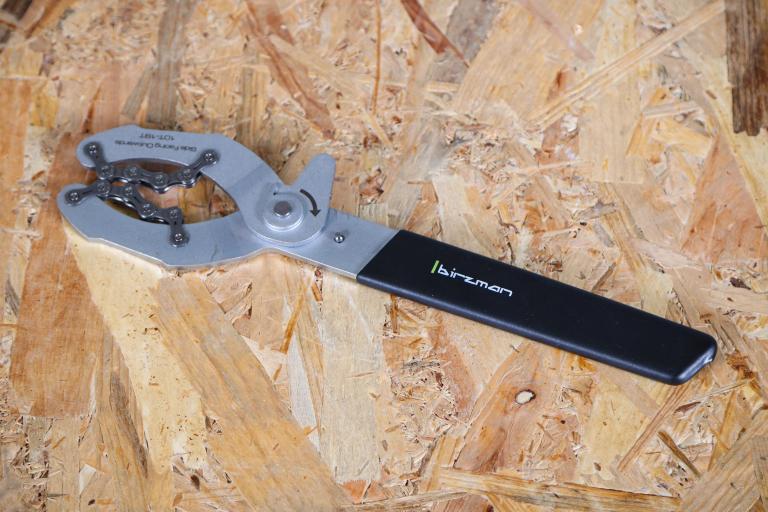
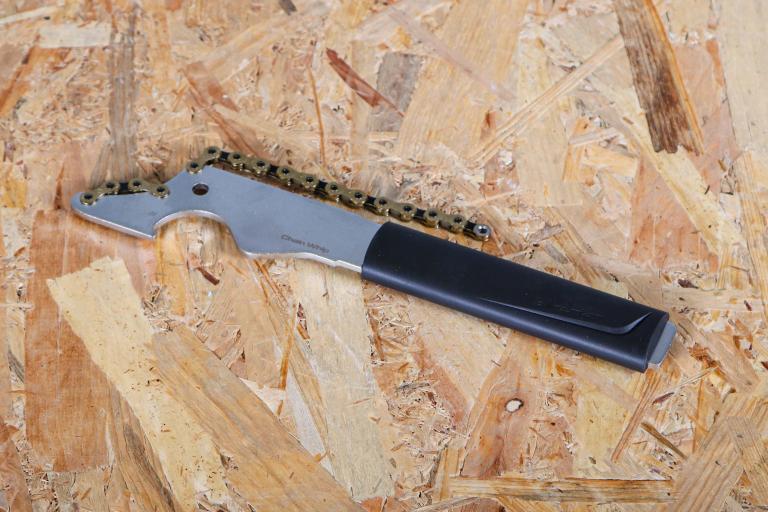
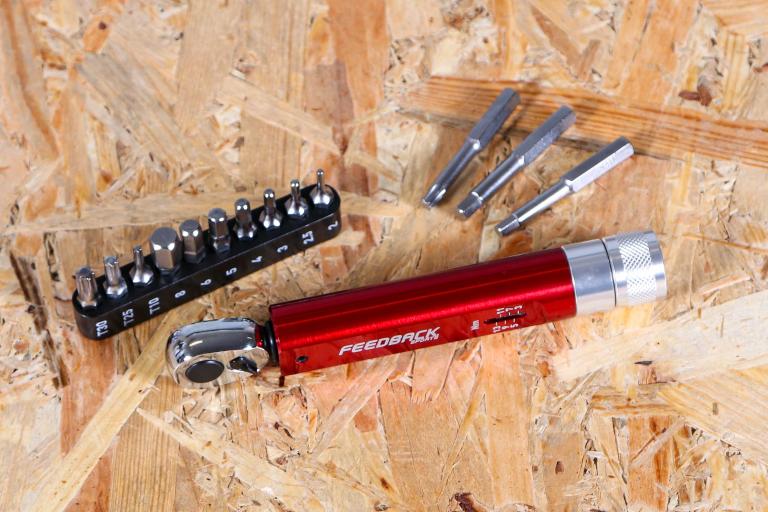
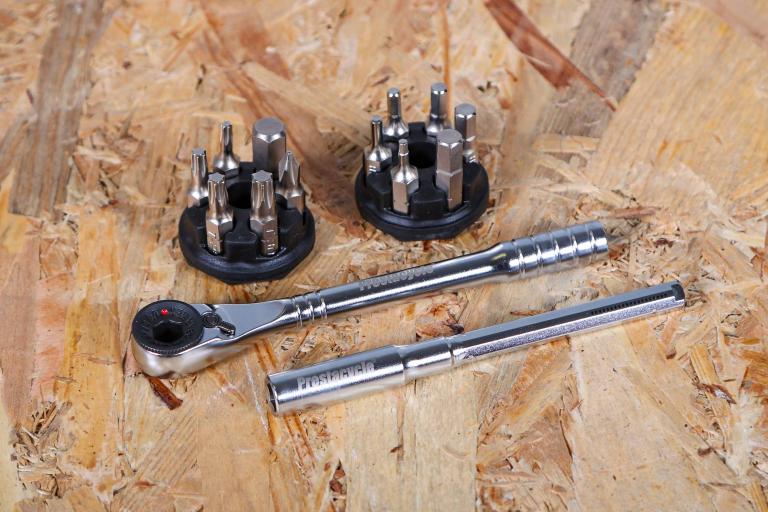
Add new comment
6 comments
Don't like microbeads? Stick your seat post in some mud does the same job and keeps your eco credentials intact.
Good question and idea about environmentaly friendly products.
I hadn't thought about the microbeads in a ecological perspective rather the scratches they make on components, which is why I use Motorex carbon paste which I believe is the only product that doesn't use beads/grit - but it is a petroleum product.
Sense of perspective here: People get cross about microbeads as they are used in everyday products as skin exfoliants that a family might go through a jar or bottle of in a few weeks, and down the plughole and into the water system. Hence thousands of tons a year from consumer use ending up in marine life. This, by comparison, is something only of interest to cyclists with carbon componentry, and who do DIY, and as mentioned is likely to last you your entire lifetime of Fettling. And, when wiped away during a refurb or component replacement, will be adhered to a scrap of cloth or paper towel destined for landfill or recycling, not the watershed.
Whilst respecting individual right to choose to only purchase products fitting a particular eco-friendly profile, I think as a society we've got bigger things to worry about than what Finish Line use as a workshop abrasive.
I keep meaning to buy some but I'm going to shop locally and buy Fenwick's carbon assembly paste. It's made just a few miles from me in Shropshire and they support our club's youth riders.
It's all part of a bigger picture. People said the same thing about supermarket plastic bags, plastic cotton buds (apparently the most common litter on beaches), but stopping the proliferation of each is a step on the road to a cleaner environment. Once you show you can satisfactorily remove microbeads from one product type you open the door to further possibilities.
Does this use microbeads? In fact, could there be a section of environmentally friendly products on the site?
Unfortunately the recent ban on "plastic microbeads" due to their effect on marine life, seems to have many people running scared unnecessarily each time they see the term "microbeads". There are all sorts of microbeads in use, many of which are deemed to be harmless. Virtually every type of reflective paint for example (as used extensively on road markings and road signs) use glass (not plastic) microbeads.
In the case of this product, I suggest it is unlilkely that it contains plastic microbeads. It is described as containing grit, and according to some reviewers there is a warning on the packet that it can scratch paint and carbon. Plastic microbeads would not do that.